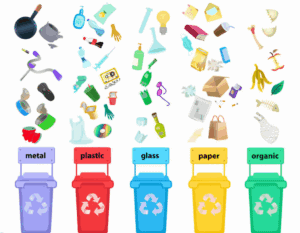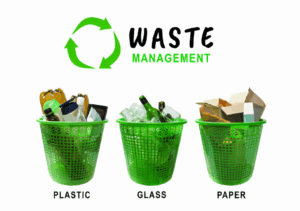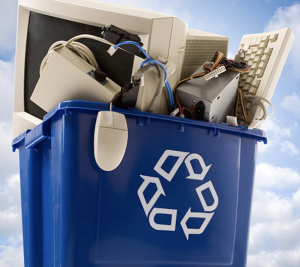The rapid advancement of technology has led to a proliferation of electronic devices, which has revolutionized the way we live and work. However, this surge in electronic consumption has also resulted in a significant increase in electronic waste (e-waste). Managing this waste sustainably is crucial to minimizing its environmental impact. E-cycling, or electronic recycling, is a vital component of sustainable electronics management, offering a pathway to mitigate the adverse effects of e-waste through responsible disposal and recycling practices.
The Importance of E-Cycling
E-waste includes a wide range of discarded electronic devices, such as smartphones, computers, televisions, and household appliances. These devices often contain hazardous materials like lead, mercury, and cadmium, which can pose serious environmental and health risks if not properly managed. E waste recycling Bangalore addresses these concerns by ensuring that electronic waste is processed in a manner that recovers valuable materials while safely disposing of hazardous components.
Environmental Benefits
One of the primary benefits of e-cycling is the reduction of environmental pollution. When e-waste is improperly disposed of in landfills or incinerated, toxic substances can leach into the soil and water, contaminating ecosystems and harming wildlife. E-cycling prevents this by extracting and safely processing these hazardous materials. Additionally, recycling electronic components reduces the need for raw material extraction, conserving natural resources and minimizing the ecological footprint of manufacturing new devices.
Economic Advantages
E-cycling also presents economic opportunities. The recovery of precious metals like gold, silver, and copper from electronic devices can be financially lucrative. These materials can be reused in the production of new electronics, reducing the costs associated with mining and refining raw materials. Furthermore, the e waste management Bangalore can create jobs in areas such as collection, sorting, and processing, contributing to economic development and providing employment opportunities in local communities.
Resource Conservation
Electronic devices are composed of a variety of materials, many of which are finite and non-renewable. By recycling electronics, we can recover and reuse these materials, thereby conserving valuable resources. For instance, recycling a single mobile phone can recover enough metals to produce multiple new devices. This not only reduces the demand for virgin materials but also decreases the energy consumption and greenhouse gas emissions associated with their extraction and processing.
Challenges in E-Cycling
Despite its numerous benefits, e-cycling faces several challenges that must be addressed to achieve sustainable electronics management.
Collection and Awareness
One of the significant hurdles is the collection of e-waste. Many consumers are unaware of the proper channels for disposing of their old electronics, leading to a large proportion of e-waste ending up in landfills or being improperly recycled. Raising awareness about e-cycling programs and providing convenient drop-off locations can encourage more people to participate in responsible disposal practices.
Technological and Logistical Issues
The complex nature of electronic devices also poses challenges for recycling. Different devices require different processing techniques, and separating valuable materials from hazardous ones can be technically demanding. Additionally, the global nature of e-waste management means that effective e-cycling requires coordination across borders, as e-waste is often exported to developing countries for processing. Ensuring that these countries have the necessary infrastructure and regulations to handle e-waste responsibly is crucial to prevent environmental harm through IT asset disposal in Bangalore.
Regulatory and Policy Frameworks
Strong regulatory frameworks are essential to promote and enforce e-cycling practices. Governments need to implement and enforce laws that mandate the proper disposal and recycling of electronic waste. Extended Producer Responsibility (EPR) policies, which hold manufacturers accountable for the entire lifecycle of their products, can incentivize companies to design more sustainable electronics and establish take-back programs.
Strategies for Effective E-Cycling
To overcome these challenges and promote sustainable electronics management, several strategies can be implemented.
Consumer Education and Engagement
Educating consumers about the importance of e-cycling and how they can participate is vital. Public awareness campaigns, community programs, and school initiatives can help spread the message about responsible e-waste disposal. Providing easy access to e-cycling facilities, such as drop-off points at retail stores or municipal centers, can also encourage more people to recycle their electronics.
Innovation in Recycling Technologies
Investing in research and development of advanced recycling technologies can improve the efficiency and effectiveness of e-cycling processes. Innovations such as automated sorting systems, chemical extraction methods, and modular design for easier disassembly can enhance the recovery of valuable materials and reduce the environmental impact of recycling operations.
International Collaboration
Given the global nature of e-waste, international collaboration is essential. Countries need to work together to develop standardized regulations and best practices for e-waste management by hard disk destruction service in Bangalore. Sharing knowledge and resources can help build capacity in developing nations, ensuring that e-waste is processed in an environmentally sound manner worldwide.
Corporate Responsibility
Corporations play a crucial role in sustainable electronics management. Companies should adopt eco-friendly design principles, such as using recyclable materials and designing products for easy disassembly. Implementing take-back programs and partnering with certified e-cycling facilities can ensure that end-of-life electronics are disposed of responsibly. Additionally, transparency in reporting e-waste management practices can build consumer trust and encourage other businesses to follow suit.
Conclusion
E-cycling is a critical component of sustainable electronics management, offering numerous environmental, economic, and resource conservation benefits. By addressing the challenges of e-waste collection, processing, and regulation, we can create a more sustainable future for electronic devices. Through consumer education, technological innovation, international collaboration, and corporate responsibility, we can pave the way for effective e-cycling practices that protect our planet and ensure the responsible use of electronic resources. Sustainable electronics management is not just an option; it is a necessity for the well-being of our environment and future generations.







